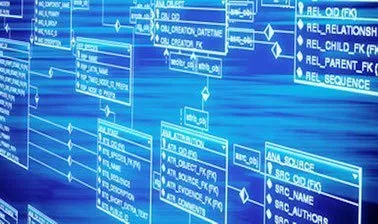
Microsoft Azure Machine Learning for Data Scientists 
Data scientists can use Microsoft Azure Machine Learning to quickly and easily create and publish predictive models. This course provides an introduction to automated machine learning, allowing users to create models without writing code and save time and resources. ▼
ADVERTISEMENT
Course Feature
![]() Cost:
Cost:
Free
![]() Provider:
Provider:
Coursera
![]() Certificate:
Certificate:
Paid Certification
![]() Language:
Language:
English
![]() Start Date:
Start Date:
22nd May, 2023
Course Overview
❗The content presented here is sourced directly from Coursera platform. For comprehensive course details, including enrollment information, simply click on the 'Go to class' link on our website.
Updated in [February 21st, 2023]
What does this course tell?
(Please note that the following overview content is from the original platform)
Machine learning is at the core of artificial intelligence, and many modern applications and services depend on predictive machine learning models. Training a machine learning model is an iterative process that requires time and compute resources. Automated machine learning can help make it easier. In this course, you will learn how to use Azure Machine Learning to create and publish models without writing code.
This is the second course in a five-course program that prepares you to take the DP-100: Designing and Implementing a Data Science Solution on Azurecertification exam.
The certification exam is an opportunity to prove knowledge and expertise operate machine learning solutions at a cloud-scale using Azure Machine Learning. This specialization teaches you to leverage your existing knowledge of Python and machine learning to manage data ingestion and preparation, model training and deployment, and machine learning solution monitoring in Microsoft Azure. Each course teaches you the concepts and skills that are measured by the exam.
This Specialization is intended for data scientists with existing knowledge of Python and machine learning frameworks like Scikit-Learn, PyTorch, and Tensorflow, who want to build and operate machine learning solutions in the cloud. It teaches data scientists how to create end-to-end solutions in Microsoft Azure. Students will learn how to manage Azure resources for machine learning; run experiments and train models; deploy and operationalize machine learning solutions, and implement responsible machine learning. They will also learn to use Azure Databricks to explore, prepare, and model data; and integrate Databricks machine learning processes with Azure Machine Learning.What can you get from this course?
We consider the value of this course from multiple aspects, and finally summarize it for you from three aspects: personal skills, career development, and further study:
(Kindly be aware that our content is optimized by AI tools while also undergoing moderation carefully from our editorial staff.)
What skills and knowledge will you acquire during this course?
This course will provide learners with a variety of skills and knowledge, including an understanding of Microsoft Azure, machine learning concepts, data science, and cloud computing. Learners will gain the ability to use Microsoft Azure to create and publish machine learning models without writing code, as well as the skills to explore, prepare, and model data using Azure Databricks. They will also learn how to use Python and machine learning frameworks like Scikit-Learn, PyTorch, and Tensorflow to manage data ingestion and preparation, model training and deployment, and machine learning solution monitoring. Additionally, learners will gain an understanding of how to leverage cloud computing to build and operate machine learning solutions at a cloud-scale, and how to implement responsible machine learning.
How does this course contribute to professional growth?
This course provides learners with the opportunity to gain a comprehensive understanding of Microsoft Azure, Machine Learning, Data Science, and Cloud Computing. Through this course, learners can develop the skills to create end-to-end solutions in Microsoft Azure, use Python and machine learning frameworks to manage data ingestion and preparation, model training and deployment, and machine learning solution monitoring. Additionally, learners can learn how to use Azure Databricks to explore, prepare, and model data, and integrate Databricks machine learning processes with Azure Machine Learning. By mastering these skills, learners can contribute to their professional growth by being able to create and publish machine learning models without writing code, manage Azure resources for machine learning, and leverage cloud computing to build and operate machine learning solutions at a cloud-scale.
Is this course suitable for preparing further education?
This Microsoft Azure Machine Learning for Data Scientists course is suitable for preparing further education. Learners can gain an understanding of the core concepts of machine learning and how to use them to create predictive models. They can also develop the skills to create end-to-end solutions in Microsoft Azure, leveraging cloud computing to build and operate machine learning solutions at a cloud-scale. Additionally, learners can learn how to use Microsoft Azure to create and publish machine learning models without writing code, and how to use Python and machine learning frameworks like Scikit-Learn, PyTorch, and Tensorflow to manage data ingestion and preparation, model training and deployment, and machine learning solution monitoring.
Pros & Cons

Great content with helpful exercises

Excellent course

Hands on experience with ML in Azure

Bugs on the code

Typos and unclear instructions

Course under maintenance
Course Provider

Provider Coursera's Stats at AZClass
Discussion and Reviews
0.0 (Based on 0 reviews)
Explore Similar Online Courses

SQL for Data Science

Isometric Design for Beginners

Python for Informatics: Exploring Information

Social Network Analysis

Introduction to Systematic Review and Meta-Analysis

The Analytics Edge

DCO042 - Python For Informatics

Causal Diagrams: Draw Your Assumptions Before Your Conclusions

Whole genome sequencing of bacterial genomes - tools and applications

Microsoft Azure Online Data Engineering Training

Cloud Developer using Microsoft Azure


Start your review of Microsoft Azure Machine Learning for Data Scientists